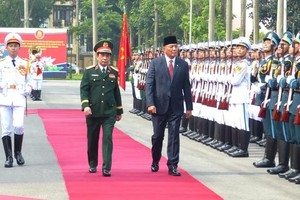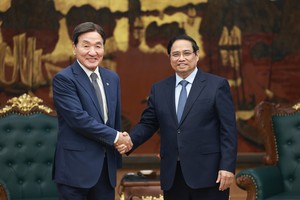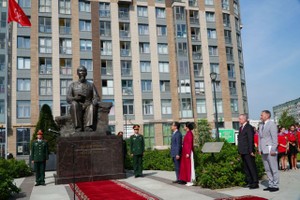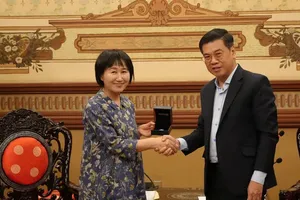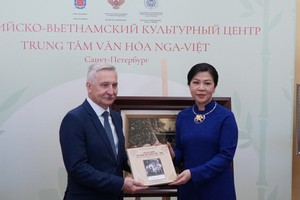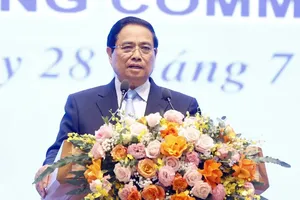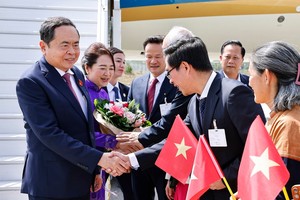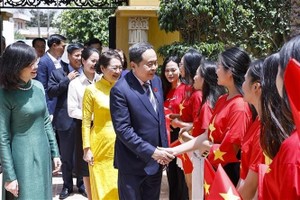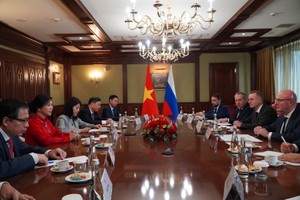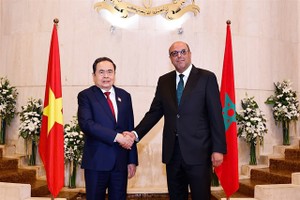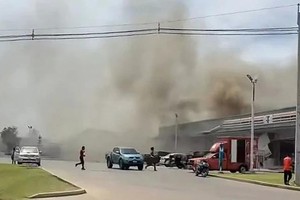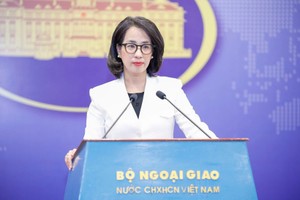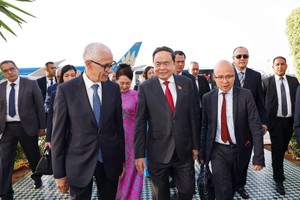DAKAR, April 3, 2010 (AFP) - Senegal's controversial African Renaissance statue was unveiled Saturday, with leaders from across the continent calling for unity and the realisation of a "United States of Africa".
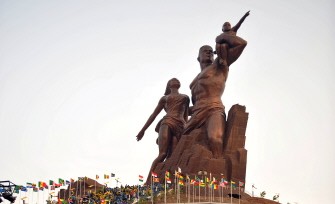
President Abdoulaye Wade called for the continent to unite in an address to a large crowd and 19 African leaders at the foot of the bronze statue, built by North Korea and higher than the Statue of Liberty.
"The time to take off has arrived," he said of the continent, split into 53 states, which is increasingly courted for the rich minerals beneath its soil and its market of over one billion inhabitants.
While African leaders vaunted the statue as a symbol for all black people around the world and its inauguration as a historical moment, thousands of local opponents protested at a wasteful extravagance in hard economic times.
Riot police patrolled nearby streets earlier Saturday as demonstrators held up banners demanding the resignation of Wade, 84, who has been in power since 2000.
Deputy opposition leader Ndeye Fatou Toure said the statue was an "economic monster and a financial scandal in the context of the current crisis," in a country where half the population lives below the poverty line.
Championed by Wade, the 52-metre (164-foot) monument whose cost is estimated at more than 15 million euros (20 million dollars) has caused a mixture of anger over its price tag, and bewilderment over its style.
The inauguration of the statue is the highlight of Senegal's 50 years of independence from France on April 4, 1960.
It depicts a muscular man emerging from a volcano with a scantily clad woman in tow and holding a baby aloft in his left arm, pointing West towards the Atlantic Ocean.
The depiction of a woman with a whisp of fabric covering her breasts and skirting her thighs has baffled many in this overwhelmingly Muslim country, where women dress demurely, and drawn criticism from Islamic leaders.
Calling for unity, Wade said that "only a political integration of the United States of Africa will shelter us from potentially fatal marginalisation" on the world's poorest continent, which holds rich economic potential, he added.
After "five centuries of ordeals, slavery, Africa is still there, folding sometimes, but never breaking. She is upright and resolute to take her future in hand," Wade said.
"The slave traders have left, the last colonialist has left. We have no more excuses. We must seize this opportunity so that history does not repeat itself."
Former Nigerian president and African strongman Olusegun Obasanjo who cut a ribbon in the colours of the Senegalese flag, said the statue was "a monument for black people all over the world".
"We have a symbol to remind us, to inspire us" of and against years of slavery and abuse. "A united union of Africa can make it not happen again."
African Union chief Bingu wa Mutharika, the president of Malawi, called for a new African unity: "We have more things that unite us, than those that divide us... Let us return to our countries with a new hope of a new Africa."
A 100-strong African-American delegation included civil rights activist Jesse Jackson and Senegalese-American singer Akon.
The presidents of Benin, Burkina Faso, Cap Verde, the Republic of Congo, Ivory Coast, Gambia, Liberia, Mali, Malawi, Mauritania and Zimbabwe were also present as well as the head of the African Union Commission Jean Ping.
"Africa has seized this monument. It is rare to have one country hosting more than a dozen heads of state for this kind of event. That testifies to their support," presidential spokesman Mamadou Bamba Ndiaye told AFP.
Long on the table, a United States of Africa has been planned by the African Union by 2025, but doubts have been raised about the ability of the continent to unite amid widespread poverty and conflicts.
